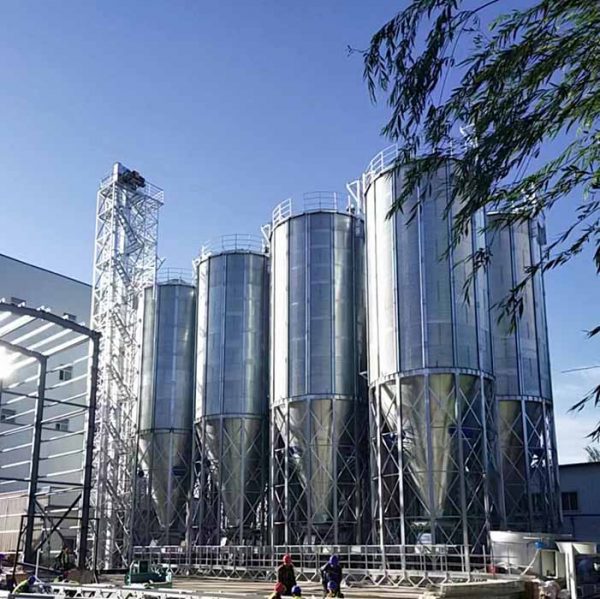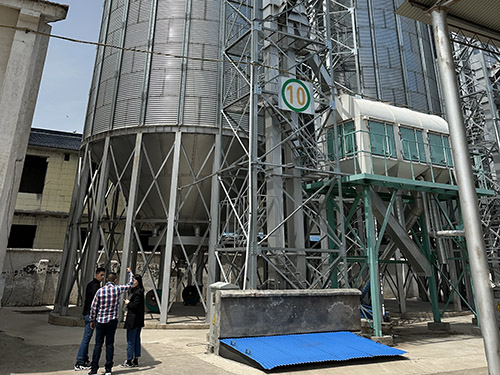In the grain storage industry, wheat grain silo supplier play a crucial role. With the advancement of agricultural modernization and the increasing demand for food security, choosing the right supplier is essential for ensuring the safety and efficiency of grain storage.
Choosing the right supplier is the first step to successful grain storage. Here is a detailed analysis of selection criteria:
Supplier's Reputation and Experience
The reputation and experience of a supplier are the primary considerations when selecting a wheat grain silo supplier. A reputable supplier can provide reliable products and professional services. Understanding the supplier's historical performance, customer reviews, and industry reputation helps assess their reliability and professionalism.

Technological Innovation Capability
Technological innovation is key for suppliers to maintain market competitiveness. Suppliers should have continuous R&D capabilities, launching new wheat grain silo products according to market demands and technological trends. For example, using advanced anti-corrosion technologies, intelligent management systems, and eco-friendly materials can enhance the performance and lifespan of silos.
Customization Service Capability
Different clients may have varying needs for wheat grain silos, making customization service capability crucial. Excellent suppliers can provide customized designs and solutions based on specific client needs, including silo capacity, structure, and functions, to meet personalized storage requirements.
The technical features of wheat grain silo supplier directly affect product performance and usage effectiveness. Here is a detailed analysis of technical features:
Structural Design and Material Selection
The structural design and material selection of wheat grain silos are key to ensuring their stability and durability. Suppliers typically use high-strength steel and advanced welding techniques to ensure the silos remain stable under heavy loads and harsh environmental conditions. Additionally, high-quality anti-corrosion materials can extend the silo's lifespan and reduce maintenance costs.
Intelligent Management System
An intelligent management system is an important technical feature of modern wheat grain silos. By integrating sensors and monitoring devices, silos can achieve real-time monitoring and automatic adjustment of grain temperature and humidity, ensuring a stable storage environment and reducing grain loss. Moreover, intelligent management systems can improve silo management efficiency and security through data analysis and remote control.
The market competitiveness of wheat grain silo supplier is key to standing out in fierce market competition. Here is a detailed analysis of market competitiveness:

Price Competitiveness and Cost Control
Price competitiveness is one of the important factors for suppliers to attract customers. Suppliers need to effectively control costs and optimize production processes to reduce product costs, thereby providing competitive prices while ensuring quality to meet the needs of different customers.
Customer Service and Support
Quality customer service is key for suppliers to maintain customer relationships and enhance brand reputation. Suppliers should provide comprehensive after-sales service, including installation guidance, maintenance, troubleshooting, and technical support, ensuring customers receive timely and effective help during use.
If you have wheat storage needs, please contact me!